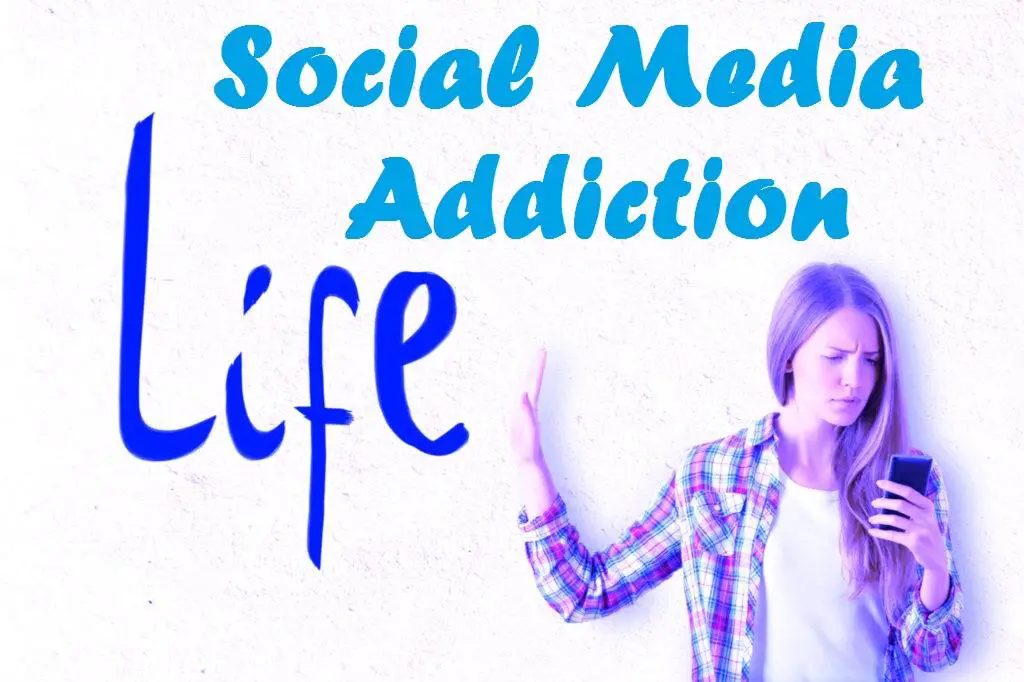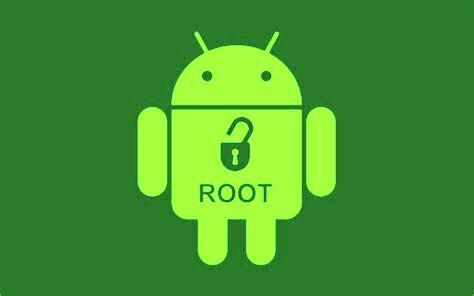Finding Freedom: Tips for Breaking Free from Digital Addiction
Category: Mobile Technology
Date: April 2023
Views: 1.50K
1. Introduction
Mobile device addiction refers to the excessive and compulsive use of mobile devices, such as smartphones and tablets, which interferes with daily activities and relationships. It is also known as smartphone addiction, digital addiction, technology addiction, or screen time addiction.
According to a recent study, 44% of the world's population consider themselves addicted to their phone. This addiction can have negative effects on mental health, relationships, and productivity.
Mobile device addiction can lead to a range of negative effects, including anxiety, depression, sleep disturbances, decreased productivity, and social isolation. It can also contribute to other forms of addiction, such as internet addiction, social media addiction, and gaming addiction.
As mobile devices become increasingly prevalent in our daily lives, it is important to recognize the potential dangers of overuse and addiction. In this article, we will explore the various types of mobile device addiction and provide tips and strategies for overcoming them.
2. Smartphone addiction
Smartphones have become an integral part of modern life, but excessive use can lead to addiction. Smartphone addiction is characterized by a compulsive need to use one's phone, even when it is not necessary or appropriate.
What is smartphone addiction?
Smartphone addiction is a type of digital addiction that is characterized by a compulsive need to use one's smartphone. It is often associated with the fear of missing out (FOMO) and a constant need to check notifications and social media updates.
Signs and symptoms of smartphone addiction
The following are some of the signs and symptoms of smartphone addiction:
Spending an excessive amount of time on the phone, especially at the expense of other activities
Feeling anxious or irritable when separated from the phone
Checking the phone compulsively, even when there are no notifications or new messages
Neglecting responsibilities or relationships because of excessive phone use
Using the phone in inappropriate situations, such as during work or social events
Difficulty focusing on tasks or conversations due to a constant need to check the phone
Negative effects of smartphone addiction
Excessive smartphone use can have several negative effects on mental and physical health, including:
Increased stress and anxiety
Poor sleep quality and quantity
Eye strain and headaches
Posture problems and neck pain
Reduced productivity and focus
Decreased social skills and face-to-face interaction
Ways to overcome smartphone addiction
Here are some tips to overcome smartphone addiction:
Set limits on screen time and stick to them
Turn off notifications for non-essential apps
Keep your phone out of reach during certain times of the day (e.g. during meals or while in bed)
Take regular breaks from using your phone
Engage in physical activities that do not involve using your phone
Practice mindfulness or meditation to reduce the urge to constantly check your phone
Use apps that can track your screen time and help you cut down on usage
Seek support from friends and family, or consider joining a support group for digital addiction.
By following these tips and seeking help when necessary, individuals can overcome smartphone addiction and enjoy a healthier relationship with technology.
3. Internet addiction
Internet addiction, also known as digital addiction, is a type of addiction that involves excessive use of the internet to the point where it interferes with daily life. It can manifest in various forms, such as excessive online shopping, social media usage, or gaming. Here are some signs and symptoms of internet addiction:
Loss of track of time while using the internet
Difficulty controlling the amount of time spent online
Neglecting responsibilities such as work, school, or personal relationships in favor of internet use
Withdrawal symptoms such as anxiety or irritability when unable to access the internet
Using the internet to escape from negative emotions or problems in real life
Internet addiction can have negative effects on mental health, including increased levels of depression and anxiety. It can also lead to physical problems such as back pain, headaches, and eye strain from prolonged screen time.
To overcome internet addiction, it is important to take proactive steps to limit internet use and engage in alternative activities. Here are some ways to overcome internet addiction:
Set boundaries for when and where you can use the internet. For example, you may choose to avoid using the internet during certain times of the day or in certain locations.
Prioritize face-to-face interactions over online communication. This can help you develop stronger personal relationships and reduce reliance on the internet for social interaction.
Take breaks from the internet and engage in other activities such as exercise, reading, or meditation. This can help reduce stress and improve overall well-being.
Try a digital detox by taking a break from the internet for a set period of time. This can help reset your habits and reduce dependence on the internet.
Seek professional help from a therapist or counselor if your addiction is severe and interfering with daily life.
4. Social media addiction
Social media has become a ubiquitous part of modern life, with billions of people around the world using platforms like Facebook, Instagram, and Twitter to connect with friends, family, and strangers. However, excessive use of social media can lead to addiction and have negative effects on mental health and overall well-being.
What is social media addiction?
Social media addiction, also known as social networking addiction, refers to the compulsive use of social media platforms that leads to negative consequences such as neglecting responsibilities, social isolation, and mood swings. This addiction is characterized by the urge to constantly check social media, difficulty in controlling usage, and a strong emotional attachment to the platforms.
Signs and symptoms of social media addiction
Spending excessive amounts of time on social media platforms
Neglecting responsibilities such as work, school, or personal relationships
Feeling anxious or irritable when unable to access social media
Continuously checking for notifications or updates on social media
Preferring virtual interactions over face-to-face interactions
Experiencing negative emotions such as jealousy or depression due to social media use
Using social media to escape or avoid real-life problems
Negative effects of social media addiction
Excessive use of social media can lead to several negative effects on mental health, such as increased anxiety, depression, and loneliness. It can also have physical effects such as poor sleep quality, eye strain, and posture problems.
Ways to overcome social media addiction
Set boundaries: Set specific times and limits for social media usage to avoid excessive use.
Seek alternative activities: Engage in physical activities, hobbies, or social interactions that do not involve social media.
Take breaks: Take regular breaks from social media use to reduce the urge to constantly check for updates.
Practice mindfulness: Practice mindfulness techniques such as meditation to reduce stress and anxiety associated with social media addiction.
Use apps to track usage: Use apps that can track your social media usage and help you cut down on usage.
Seek professional help: Seek help from a therapist or counselor if social media addiction is interfering with daily life.
5. Gaming Addiction
Gaming addiction, also known as video game addiction, is a type of behavioral addiction that involves compulsive and excessive use of video games. It is a growing concern, particularly among younger individuals, and can have negative effects on mental health, physical health, and social relationships.
What is gaming addiction?
Gaming addiction is characterized by a persistent and compulsive need to engage in gaming activities, despite negative consequences. This can include spending excessive amounts of time playing video games, neglecting responsibilities and social relationships, and experiencing withdrawal symptoms when unable to play.
Signs and symptoms of gaming addiction
Some common signs and symptoms of gaming addiction include:
Preoccupation with video games
Loss of interest in other activities
Neglect of personal hygiene and responsibilities
Changes in sleep patterns
Irritability and mood swings
Withdrawal symptoms when unable to play, such as anxiety or depression
Negative effects of gaming addiction
Gaming addiction can have a range of negative effects on mental health, physical health, and social relationships. Some common effects include:
Decreased academic or work performance
Increased risk of obesity and other health problems associated with a sedentary lifestyle
Poor social skills and difficulty forming relationships
Aggressive behavior and decreased empathy
Sleep disturbances
Ways to overcome gaming addiction
If you are struggling with gaming addiction, there are steps you can take to overcome it. Some strategies that may be helpful include:
Set limits on your gaming time and stick to them
Identify and avoid triggers that lead to excessive gaming
Engage in other activities that you enjoy or that are physically active
Seek professional help from a therapist or counselor
Join a support group for gaming addiction
By taking steps to overcome gaming addiction, you can improve your mental and physical health, strengthen social relationships, and regain control over your life.
Conclusion
In conclusion, mobile device addiction is a growing concern in today's society, with individuals becoming increasingly dependent on their phones and other digital devices. It can lead to negative effects on mental health, relationships, and productivity. It is important to recognize the signs and symptoms of addiction and take steps to overcome it.
By setting limits on screen time, engaging in physical activities, practicing mindfulness, and seeking support from friends and family or professionals, individuals can overcome addiction and regain control over their digital habits. It is also important to prioritize face-to-face interactions and self-care activities, and to take breaks from digital devices to reduce stress and improve overall well-being.
Remember that overcoming addiction takes time and effort, but it is possible with the right tools and support. By implementing these strategies and making conscious choices about digital device usage, individuals can reduce their dependence on technology and lead a more balanced and fulfilling life.





















0 Comments, latest